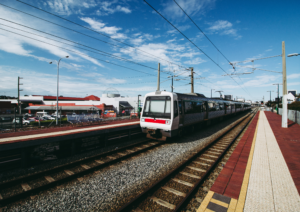The number of people waiting for renal dialysis in regional WA has doubled since 2020, with several regional communities now facing average wait times of over a year to access this important health service.
Shadow Minister for Regional Health Martin Aldridge MLC said WA Labor should be ashamed of their lack of investment into regional renal dialysis services since 2017.
“Demand for dialysis chairs has almost doubled over the past two years, and disturbingly, in some
regional towns like Northam or Busselton, the average wait time to access services is now well over a
year,” Mr Aldridge said.
“Meanwhile, just a handful of new chairs have been added to regional communities since WA Labor
came to power.”
Answers provided by the Minister for Health to Parliament revealed the average wait time had increased by more than 1,000 days across all regional locations over the past two years – from 2,192 combined days in June 2020 to a total of 3,238 days in June 2022.
Mr Aldridge said of the twelve regional locations where renal dialysis chairs are provided by the State
Government, wait times have sharply increased in eight locations including Albany, Broome, Bunbury, Busselton, Carnarvon, Fitzroy Crossing, Geraldton and Northam.
“The average wait to access dialysis in Geraldton has almost doubled since 2020, soaring to 245 days. While this eight-month wait is a serious concern for over a dozen residents on the waitlist in the Mid West, it is shamefully one of the shorter wait times in regional WA,” he said.
Member for North West Central Merome Beard MLA said Carnarvon had five residents on the wait list who are facing an average wait time of 398 days.
“Unless WA Labor increases the availability of dialysis chairs in Carnarvon, these residents have no choice but to leave their homes, families and communities and relocate to Perth for treatment,” Ms Beard said.
Ms Beard also called on the Government to expand PATS eligibility for those who had to travel to access dialysis services and training.
“In communities where chairs are not available and in-home dialysis is an option, residents must still travel to Perth for training, which can take up to three months, and there is a significant gap between travel and accommodation costs and the PATS subsidy,” she said.
“The McGowan Labor Government should be ashamed at boasting a $6 billion surplus while regional West Australians struggle to access basic healthcare.


